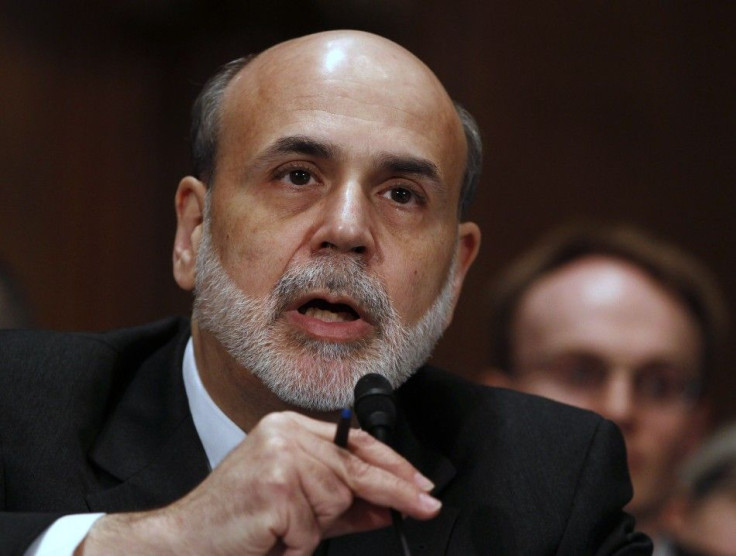Bernanke Presentation Extends Risk-On

Tom Sowanick is Co-President and Chief Investment Officer of Omnivest Group in Princeton Junction, NJ
Federal Reserve Chairman Ben Bernanke’s first press briefing yesterday stated quite clearly that the Fed will continue with QE2 through the end of Q2, and maintain its ultra low interest rate policy for an extended period of time. Mr. Bernanke also suggested that any inflationary pressures would likely be “transitory” and that unemployment would remain stubbornly high. The take away from his comments should allay any fears that the Federal Reserve will be lifting interest rates any time soon.
In response to his comments, stocks rallied, the US dollar dropped and long-term interest rates rose. All of these market reactions seem logical in that the Fed is willing to tolerate inflationary pressures as a minor cost in bringing down the unemployment rate. However, the impact on long-term interest rates should be negative, to the extent that rising inflation expectations will push long-term interest rates higher.
Investors should take heed of yesterday’s press briefing to get long risk. By this, we mean equities should continue with their spectacular rally and expect to see the S&P 500 move back to its previous high of 1565.15, set October 9, 2009. This is not a new bullish forecast for us, but rather a continuation of the same forecast we have written over the past year.
“Risk-on” also means staying invested in low quality corporate bonds, distressed debt instruments and bank loans. Yes, credit spreads are narrow, but they are also justifiably so given the improving landscape of corporate earnings.
The US dollar will likely continue to come under considerable downward pressure, with high-yielding currencies gaining the most versus the US dollar. We also expect the euro to continue to appreciate against the US dollar as the ECB and the Federal Reserve continue to move in opposite paths relative to monetary policy.
With Federal Reserve holding monetary policy steady, there will be little reason to expect short-term rates to move higher over the near term. Hence, investors in need of income will need to either move out on the yield curve or move down in credit quality.
Our view is that moving down in credit quality is safer than extending maturities.
Additionally, with the Fed committed to stimulating economic growth, pro-cyclical equity strategies should be the preferred approach. First, favor small cap over large cap in the US. Second, continue to overweight emerging market equities for long-term growth.
The increase in global growth prospects should continue to put upward pressure on commodities and other real assets. The lack of any credible strong US dollar policy should also support higher gold prices, perhaps significantly higher.
© Copyright IBTimes 2024. All rights reserved.











